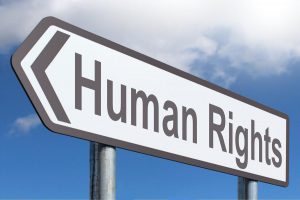Juan Leopoldo Martinez (*)
Corruption is a major problem of many societies, becoming a common topic in the media where not only politicians but athletes and renowned people have participated in such unethical behaviour. However, the problem has been observed mainly from the perspective of illegal actions performed by public officials and less frequently by other actors involved. As such, this research was aimed to analyze how such a complex process as graft is executed by not only public servants but also individuals and corporations profiting from the entrusted power given by the state in a form of a specific benefit.
My Master´s thesis* was focused on a currency exchange control policy implemented in Venezuela since 2003 that still exist which essentially was applied with the goal of maintaining the international reserves of the country after an enormous capital flight phenomenon that happened in the four previous years, since the election of Hugo Chávez as president in 1998. These reserves dropped from 12 billion USD in 2003 to 9.87 billion USD by mid-2017, meaning that the main goal of the economic policy was not achieved.
Nevertheless, this investigation was focused on the practices rather than the economic outcome. Using the theories of currency crisis, clientelism, state capture and business capture, this research explains how different sectors of the society benefited from this policy. Public resources obtained from oil extraction revenues were given by the state to individuals and businesses in the form of USD cheaper than the normal exchange rate, which came from the revenue of the oil extraction with the purpose of redistribution of national assets and promote the access of low-priced goods to the economy.
However, this ended in a massive pillage by citizens, corporations and public officials whom used the legal framework but creating fake mechanisms to have access to subsidized USD and then, sell them in the black market. It is a not-common corruption scenario where the illegal acts were not based on obtaining resources but in the final use of these. The examination of this policy, provides empirical evidence of how corruption works and the mechanisms created to obtain resources using the legal framework but using them corruptly.
Additionally, this study suggests that, as a public policy, the currency exchange control shaped a prolonged currency crisis while authorities were either overly-permissive or ineffective punishing robbery practices. In any case, people, companies, and public officials were permitted to obtain rents from the state by systemic corruption without explanations of such errors or allowance. Future research should focus on quantifying amounts of money lost by the Venezuelan Republic, something that is still not clear.
*Chevening Scholar, MA (c) Corruption and Governance, University of Sussex. For the full study, please contact Juan Leopoldo Martínez at juanleopoldomartinez@gmail.com.
